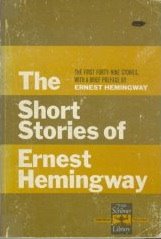 The Fabric of the Cosmos is a huge book. It took me about four months to get through, and that's without stopping to really grasp some of the more complicated topics discussed. I picked it up out of innocent curiousity, merely wanting to know more about physics, and I heard this book was accessible and enlightening. So, instead of the oft-discussed A Brief History of Time by Stephen Hawking, I went with this.
The Fabric of the Cosmos is a huge book. It took me about four months to get through, and that's without stopping to really grasp some of the more complicated topics discussed. I picked it up out of innocent curiousity, merely wanting to know more about physics, and I heard this book was accessible and enlightening. So, instead of the oft-discussed A Brief History of Time by Stephen Hawking, I went with this.Let me first say that I thoroughly enjoyed this book. Brian Greene writes for the layman. His examples of the complicated world of physics involve The Simpsons and X-Files, among other things, making the learning both fun and interesting, and well worth-while. He also lets the reader know when an overly complicated piece is about to be explained and purges any guilt by saying that there's no harm in just skimming over the section. I mean, what's not to like about this guy.
Still, about halfway through, I couldn't help but feel like I was taking a distance learning physics course. Greene gives the entire history of physics, including a thorough treatment of Einstein's theories (with ample Simpsons examples as noted above) and dives into the present and onto the future. Greene has done something quite amazing with this book, he's made complicated physics accessible to the masses while consolidating current research and breakthroughs into one volume, making this book useful to working physicists and rocket scientists and robot designers. That's just a guess.
The distance learning feeling isn't a bad thing though. It's like jumping in the water without getting your feet wet. What I loved most about reading this book is that the topics it covers are exciting. I learned a lot, and even though I'll probably never put any of this knowledge to use, it got the rusty abstract wheels in my head turning. And Greene's a great teacher because he assumes no prior knowledge from his class, so he explains it all, with wonder, which makes it even more dazzling.
Covered in this "course" are the history of phyisics from Newton to Einstein to recent ideas like The Higgs Ocean (basically that air is an entity - which I think makes perfect sense) and electromagnetism to current research on String Theory and Super String Theory and all of their entanglements and excitements. Greene also broaches philosophical subjects, which is inevitable when dealing with the abstract because it is the abstract that much of philosophy encompasses. While I didn't agree with him on most subjects (i.e. teleporting a person, or making a perfect clone, would make the person identical to you down to the last ounce vs. where I think a person cloned would not have the intangible qualities of soul, but would instead have a fresh soul. But I digress because this is obviously a longer discussion better suited for a message board or club meeting, right?) I did find his viewpoint unique and insightful.
The point? If you're of a curious mind, don't want to spend the money for a college course, but want to learn all about physics in one place, if you don't mind not taking tests (wha...?), and if you like to be inspired by words, this book is for you. But be prepared for a committment, and make sure you plan for a vacation when you're done.
As for me, school's out for summer! And as for you, if you pick it up, enjoy!
I like this cover, mostly because of the fluid spiral that I believe is supposed to resemble a string, a tiny plunk length string. But I could be wrong. My mind is mush right now and this book's the last thing on my mind (end of school sigh).


No comments:
Post a Comment